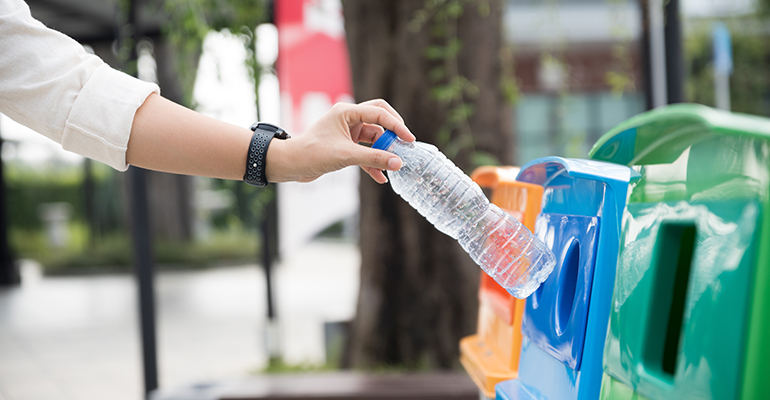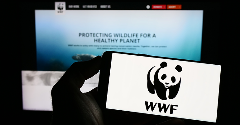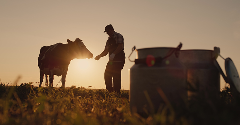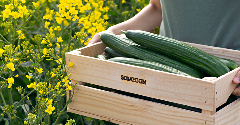News
Europe aims to make beverage packaging fully circular by 2030
5 Mar 2021UNESDA Soft Drinks Europe, the trade association representing the European non-alcoholic beverage sector has pledged to make beverage packaging fully-circular in Europe by 2030. The association plans to accomplish this by incentivizing the use of rPET, refillable bottles and increasing the current collection rates for recyclable packaging.
The commitment will be achieved in stages with 2025 being the first landmark date where the association hopes to have 50% of packaging incorporating rPET; by 2030, the organization wants to see PET containers made exclusively from recycled or renewable material. Additionally, the association is targeting a 90% collection rate for all beverage packaging by 2030, which is higher than current EU targets.

UNESDA represents 23 associations across Europe and counts companies such as Coca-Cola, Danone, PepsiCo and Nestlé among its members. While its goals are Europe-wide, the organization will have to put unequal effort into achieving them depending on which country’s compliance it is measuring. Overall, collection rates for PET bottles are high with UNESDA research showing that Germany and Denmark already collect over 90% of used PET beverage containers. In Greece though, that figure only rises to 24%.
The push to encourage more sustainable packaging does have support from some governments. In the UK, there is the EU Plastics Tax which has a proposed tax rate of £200 (US$264) per ton tax rate for plastic packaging that is imported into the UK using less than 30% recycled plastic.
In addition to recyclability, the plan to promote a circular beverage container economy includes a component that aims to boost the use of refillable packaging. While there is plenty of demand for refillable packaging that has made the existence of companies such as Loop and TerraCycle possible, refillable packaging on a large scale remains a niche solution. Nevertheless, the European trade association is committed to tackling the learning curve and cultural shift that reusable packaging will necessitate and is currently "studying the best environmental and socio-economic pathways to increasing refillable models.”
Still, it is going to require additional support and participation from companies in order to achieve these lofty goals and transition to a greener economy. But with Europe aiming to become the world’s first climate-neutral continent by 2050, UNESDA's objective of promoting a sustainable circular economy will likely prove to not only achievable but to be an example for others to follow.
Related news

Soy story: WWF scores UK supermarkets on sustainability efforts
12 Nov 2025
WWF has published its latest “Soy Scorecard”, ranking UK supermarkets’ efforts to combat deforestation and land conversion in their soy supply chains.
Read more
Standing Ovation and Bel scale up casein production from dairy co-products
11 Nov 2025
Foodtech company Standing Ovation has partnered with cheese specialist Bel Group to manufacture dairy serums for industrial-scale casein production via precision fermentation.
Read more
New UPF standard hoped to offer consumers ‘coherence and clarity’
10 Nov 2025
Ingredients companies are being urged to enter “a new era of partnership and innovation” following the launch of the industry’s first non-UPF verification scheme.
Read more
Whistleblowers accuse UK meat industry of promoting cheap, unsustainable supply
7 Nov 2025
An anonymous group of industry insiders has accused the UK’s biggest food companies of systematically driving down meat quality and welfare standards.
Read more
Bord Bia presents Irish dairy ingredient suppliers at Fi Europe
6 Nov 2025
Dairygold Co-operative Society, The Carbery Group, and Ornua Co-operative: Meet with sustainable producers of Irish dairy ingredients at Food ingredients Europe 2025, Hall 7.2 Stand M18.
Read more
AI attraction means foodtech startups must ‘prove’ rather than ‘promise’
4 Nov 2025
Reports suggest that artificial intelligence (AI) is sucking investment from foodtech and agritech, but investors say the picture is complicated.
Read more
Penguin and Club bars no longer classed as chocolate
30 Oct 2025
Penguin and Club bars can no longer be classified as chocolate after the pladis-owned McVitie’s brands turned to cheaper alternatives amid the ongoing cocoa crisis.
Read more
Could plant-based protection replace plastic packaging?
29 Oct 2025
Swedish foodtech company Saveggy has launched an additive-free plant-based protection for cucumbers, offering a waste-free packaging solution for fruit and vegetables.
Read more
Does promoting protein content push up plant-based sales?
27 Oct 2025
Promoting the protein content of meat-free products is a more effective sales strategy than adding carbon labels, a study of UK bakery chain Greggs suggests.
Read more
Amazon Grocery launch aims to balance quality with affordability
22 Oct 2025
Global e-commerce giant Amazon has introduced a new private-label food brand, combining existing Amazon Fresh and Happy Belly products with new everyday items.
Read more